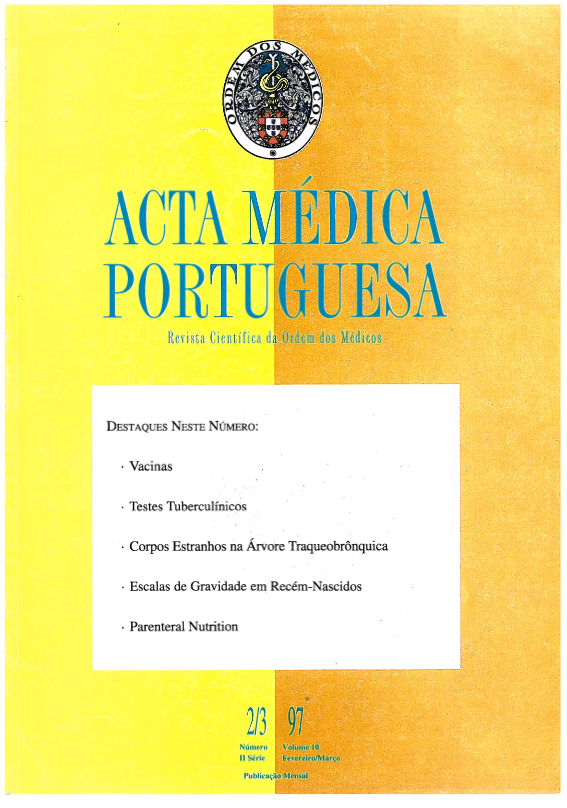A comparison of 4 pregnancy assessment scales (CRIB, SNAP, SNAP-PE, NTISS) in premature newborns. Clinical Risk Index for Babies. Score for Neonatal Acute Physiology. Score for Neonatal Acute Physiology-Perinatal Extension. Neonatal Therapeutic Intervention Scoring System.
DOI:
https://doi.org/10.20344/amp.2397Abstract
In recent years a number of neonatal risk scores have been developed in order to assure a more accurate evaluation of results obtained by different NICU's. It is noteworthy that throughout the years an effort has been made to adapt the scores to the specific neonatal problems and to make them easier to use. We felt that it would be important to compare various scores (CRIB, SNAP, SNAP-PE, NTISS) in a population of premature infants. This was the main objective in this study. Between January 1992 and February 1995 a total of 186 infants with birthweight under 1500 grams and/or gestational age under 32 weeks were admitted to our Unit. There were 40 deaths (21.5%). It was possible to use the four above mentioned scores retrospectively. The area under the ROC curve (for predicting in-hospital mortality) in each score was: CRIB 0.90; SNAP 0.88; SNAP-PE 0.88; NTISS 0.85. The CRIB score was easier to perform (only 5 minutes, in contrast to 20-30 minutes for the other scores). From this study CRIB score is apparently a suitable and accurate method easily performed in clinical practice.Downloads
Downloads
How to Cite
Issue
Section
License
All the articles published in the AMP are open access and comply with the requirements of funding agencies or academic institutions. The AMP is governed by the terms of the Creative Commons ‘Attribution – Non-Commercial Use - (CC-BY-NC)’ license, regarding the use by third parties.
It is the author’s responsibility to obtain approval for the reproduction of figures, tables, etc. from other publications.
Upon acceptance of an article for publication, the authors will be asked to complete the ICMJE “Copyright Liability and Copyright Sharing Statement “(http://www.actamedicaportuguesa.com/info/AMP-NormasPublicacao.pdf) and the “Declaration of Potential Conflicts of Interest” (http:// www.icmje.org/conflicts-of-interest). An e-mail will be sent to the corresponding author to acknowledge receipt of the manuscript.
After publication, the authors are authorised to make their articles available in repositories of their institutions of origin, as long as they always mention where they were published and according to the Creative Commons license.









